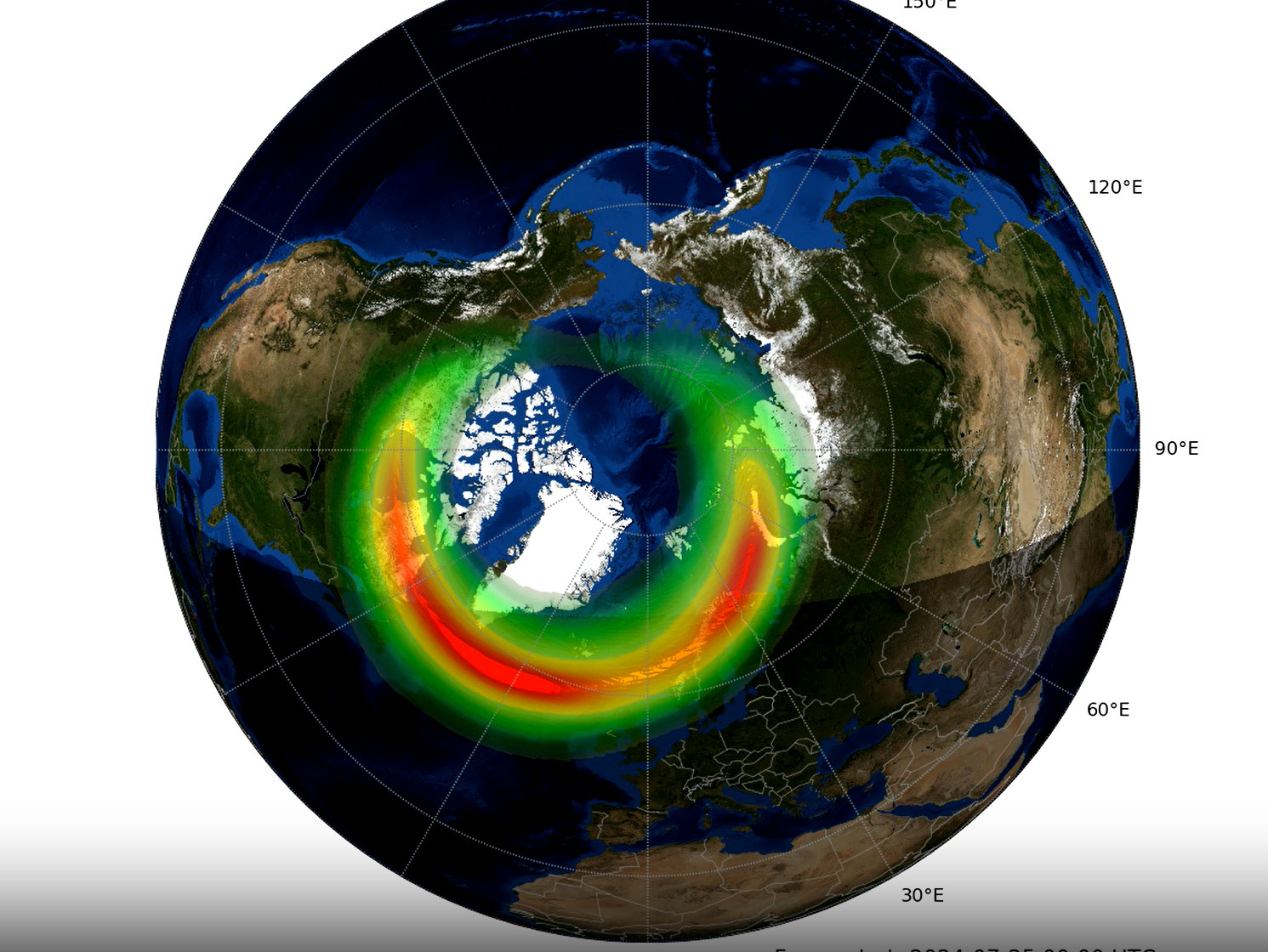Northern Lights to stretch to UK and US tonight after huge solar storm
Met Office’s Space Weather forecast states that aurora borealis will last until midnight on Wednesday
The northern lights will stretch as far south as England on Wednesday night, according to the UK Met Office’s latest forecast, as a major geomagnetic storm hits the Earth.
A plume of plasma released by the Sun, known as a coronal mass ejection (CME), will see the aurora borealis appear across the US, with astronomers predicting they could be seen from New York and other northerly US states.
The Met Office’s Space Weather forecast stated that the celestial display is expected to last from Tuesday night until midnight on Wednesday, however conditions across many parts of the UK may not be ideal.
“A coronal mass ejection is likely to arrive early on 24 July, giving a peak chance of Strong Geomagnetic Storm (G3) conditions,” the forecast stated.
“This may result in auroral displays down to Northern Ireland, northern England and similar geomagnetic latitudes, albeit impeded by the near-full moon and limited hours of darkness.”

The Met Office has advised that the best conditions to view the northern lights is when the sky is dark and clear of any clouds.
Current forecasts suggest large parts of the UK will be covered by cloud on Wednesday evening, however many parts within reach of the northern lights in the US and Canada will have much more favourable conditions.
“Ideally, the lights will be best viewed away from any light pollution, in remote areas, facing the northern horizon – north facing coasts produce some of the best viewing locations,” the UK weather agency states on its website.
“Predominantly the northern lights are best witnessed in Scotland, North England, North Wales and Northern Ireland. However, under severe space weather conditions, the lights can be seen throughout the UK.”
Space weather expert Tamitha Skov noted that the exact arrival time of the northern lights is hard to predict due to “slow solar wind ‘traffic’ and an additional glancing storm blow ahead of [the CME].”
The physicist added that the impact of the solar storm will likely be “fashionably late”.
Join our commenting forum
Join thought-provoking conversations, follow other Independent readers and see their replies
Comments
Bookmark popover
Removed from bookmarks